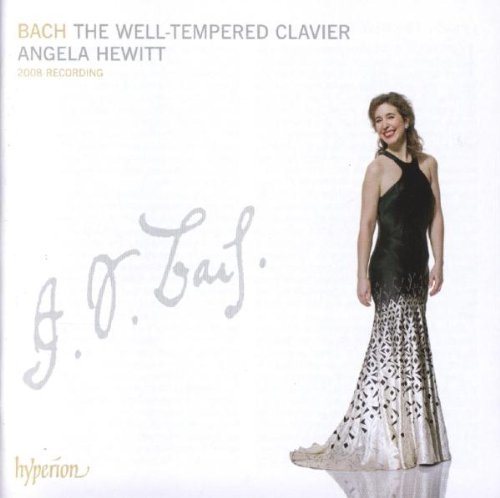Bach Well-Tempered Clavier, Books 1 & 2
Second time around for Hewitt’s Clavier yields wonderful new subtleties
View record and artist detailsRecord and Artist Details
Composer or Director: Johann Sebastian Bach
Genre:
Instrumental
Label: Hyperion
Magazine Review Date: 6/2009
Media Format: CD or Download
Media Runtime: 0
Mastering:
Stereo
DDD
Catalogue Number: CDA67741/4

Tracks:
| Composition | Artist Credit |
|---|---|
| (Das) Wohltemperierte Klavier, '(The) Well-Tempered Clavier |
Johann Sebastian Bach, Composer
Angela Hewitt, Piano Johann Sebastian Bach, Composer |
Author: Jed Distler
Listening to Angela Hewitt’s latest thoughts on Bach’s Well-Tempered Clavier alongside her late-1990s Hyperion cycle (11/98, 7/99), it appears that her interpretations haven’t changed so much as evolved, intensified and, most important, internalised. This perception is enhanced by a closer sonic image, plus the leaner, more timbrally diverse qualities of Hewitt’s Fazioli concert grand that contrast with her earlier recording’s mellower, more uniform Steinway. Yet I readily credit Hewitt’s pianistic prowess for more acutely differentiated legato and detached articulation this time around, together with a wider range of melodic inflection. This adds considerable textural dimension to fugues such as the A minor Book 1 and G minor Book 2, whose close counterpoint is extremely difficult to voice and clarify. The same goes for C major Book 1 and D major Book 2 Fugue stretti, and the C minor Book 2 Prelude’s bolder colours. Hewitt’s uncommonly brisk and elegantly poised G sharp minor Book 2 Fugue has acquired conversational light and shade. While some listeners may prefer the first A major Book 1 Prelude’s austere grace to the remake’s more animated yet slightly arch dynamic taperings, Hewitt now imbues the fugue’s breathtaking cross-rhythmic motion to brasher and wittier effect. Rubati hinted at earlier re-emerge in fuller, more purposeful bloom: compare both readings of the E flat major Book 1 Prelude and the E major Book 2 Fugue, for example. Perhaps one could pigeonhole Hewitt I as characterised by dance, while Hewitt II mainly celebrates song. While both versions hold equal validity and stature, Hewitt’s remake ultimately digs deeper, with more personalised poetry. Perhaps she’ll revisit the Goldberg Variations next?
Discover the world's largest classical music catalogue with Presto Music.

Gramophone Digital Club
- Digital Edition
- Digital Archive
- Reviews Database
- Full website access
From £8.75 / month
Subscribe
Gramophone Full Club
- Print Edition
- Digital Edition
- Digital Archive
- Reviews Database
- Full website access
From £11.00 / month
Subscribe
If you are a library, university or other organisation that would be interested in an institutional subscription to Gramophone please click here for further information.




